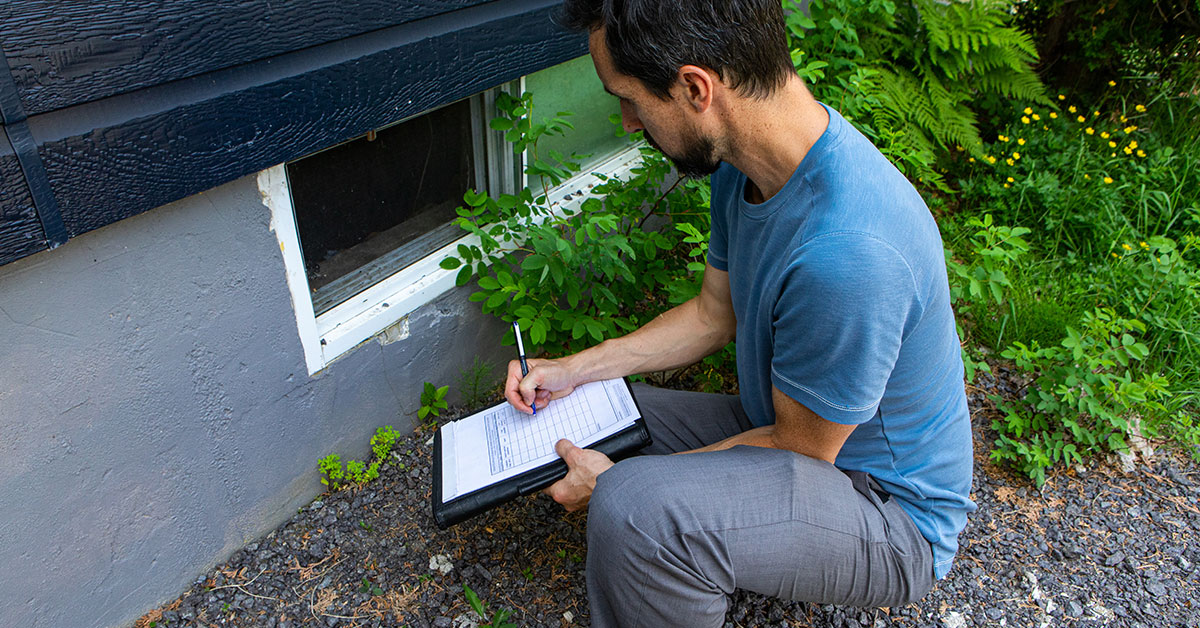
How to Avoid Closing Costs When Buying a House
Buying a home is a significant investment that can come with many expenses, including closing costs. Closing costs can add up to thousands of dollars and can be a major financial burden for homebuyers. While it is impossible to completely cut out all closing costs, there are several ways to reduce these costs through negotiation and shopping around. In this blog post, we will discuss some effective strategies that you can use to avoid paying unnecessary closing costs when buying a home. Whether you're a first-time homebuyer or an experienced real estate investor, this guide will provide you with valuable insights on how to save money during the homebuying process.
What Are Closing Costs?
In short, closing costs are a collection of fees that must be paid by buyers and sellers when they finalize the purchase of a home. These fees are intended to cover the costs associated with the legal, administrative, and financial aspects of the transaction, such as appraisals, title searches, and loan origination fees.
The term "closing" refers to the final stages of the home buying process, when all legal documents must be signed, and payments must be made. At this point, buyers and sellers are typically subject to various closing costs and fees. These costs can include any combination of fees from lenders, title companies, appraisers, and third parties for performing a service involved in finalizing the real estate transaction.
Closing costs are typically a percentage of the total purchase price of the home, and they can range from two to six percent. For example, a $250,000 house would range anywhere from $5,000-$15,000 in closing costs. How much you'll pay in closing costs depends on many factors. For sellers, it depends on agent commission and concessions; while for buyers, it depends on the loan program, size of the loan, and individual lender policies and practices.
Closing Costs for the Buyer
As a buyer, it's essential to understand the various closing costs that you may be responsible for when purchasing a home. The projected closing costs will be outlined in the Loan Estimate form the lender gives you after you apply for a mortgage. The lender has three business days to get you the Loan Estimate, which should give you a more precise breakdown of the costs you'll need to pay. A few days before the actual closing, your lender will provide you with a final summary of your closing costs in a Closing Disclosure document. Be sure to review this document carefully to ensure that everything is in order and that you understand all of the fees listed.
Here are some common buyer closing costs you might encounter:
- Appraisal fee: This fee covers the cost of having the home appraised to determine its value.
- Application fee: Lenders may charge a fee to process your mortgage application.
- Discount points: These are optional fees you can pay upfront to lower the interest rate on your mortgage. One discount point equals 1% of the loan amount and usually reduces the interest rate by 0.25%.
- Escrow account funds: This fund holds the money your mortgage servicer will use to pay your property taxes, home insurance, and mortgage insurance premiums (if applicable).
- Home inspection fee: This fee covers the cost of inspecting the home for any defects or issues that may need to be addressed before closing.
- Loan-origination fees: These fees cover the cost of underwriting and processing your loan and may include an administration fee or underwriting fee.
- Condo questionnaire fee: This fee is paid by the buyer or the buyer's lender to obtain information about the condominium association and the financial health of the association. However, this might not be required for every condo.
- Mortgage insurance or fees for government-backed loans: Different government-backed mortgages require upfront fees such as mortgage insurance premiums, guarantee fees, or funding fees.
- Credit report and credit supplement fees: These fees cover the cost of obtaining and reviewing your credit report.
- Title-related costs (lender's title insurance, owner's title insurance, title search fee): These fees cover the cost of ensuring that the title to the property is clear and transferring ownership from the seller to the buyer.
- Tax-monitoring and research fees: These fees cover the cost of checking how much property tax you owe and making sure the taxes are paid.
- Government recording fee: This fee covers the cost of recording the transfer of ownership and other legal documents with the appropriate government agency.
- Prepaid expenses, such as home insurance, property tax for the length of the year you own the home, and the interest that accrues on the mortgage between closing and your first monthly payment: These expenses are paid in advance and cover items such as home insurance, property taxes, and interest that accrues on your mortgage between closing and your first monthly payment.
Note: Some of these costs may or may not be technically included in your closing costs with your lender, depending on the lender you go with. However, they are all generally considered part of the closing process.
Ways to Lower Your Closing Costs
Shop Around for the Best Lender Rates
The most fundamental step in reducing your closing costs is to shop around for the best lender rates. Start by researching and narrowing down your list to your top three to four lenders. Once you have a shortlist of lenders, request a Loan Estimate form from each of them. Lenders have been required to provide a breakdown of your mortgage loan, including closing costs, in the Loan Estimate form since 2015. This allows you to compare the fees across the board, making it easier to identify any major differences in pricing.
When comparing fees from different lenders, it's important to look beyond just the interest rate. Look for any additional fees, such as application fees, origination fees, or title-related costs. Comparing these fees side-by-side can help you identify the best lender for your specific needs. Once you have a clear understanding of the pricing of services from different lenders, you can start negotiating to see if they can reduce or waive certain fees.
Negotiate Lender Fees
Negotiating with your lender is the next crucial step in reducing your closing costs. You can negotiate certain fees, like origination fees, application fees, processing fees, credit check fees, and miscellaneous fees, that are often referred to as "lender fees.” Start by asking your lender to explain each fee and how it is calculated and inquire about reducing or waiving fees to offset the closing costs on negotiable line items.
Many times, miscellaneous fees can be negotiated down if they are not explicitly required by law or regulation. Don't be afraid to ask your lender for clarification if you're unsure about a vague fee. By negotiating fees and asking questions, you can potentially save thousands of dollars in closing costs.
However, be cautious of lenders who may try to offset your closing costs by increasing your interest rate or bundling fees into your total mortgage cost. Carefully review any changes the lender proposes and make sure they align with your financial goals.
Comparison Shop for Third-Party Services
Comparing prices for third-party services is another effective way to lower your closing costs. While lenders are required to use certain third-party services for the home appraisal, home inspection, homeowners’ insurance, and title search, they often have their preferred vendors listed. However, some of these services may be optional, and you may be able to save money by shopping around for better rates.
To reduce your closing costs, find out which providers are optional and compare prices from different providers for services like survey, title insurance binder, lender's title policy, and settlement/closing agent. Title insurance and settlement services are two of the most significant expenses in the "Services You Can Shop For" section, and they are also highly negotiable. By comparing prices and negotiating with different providers, you can find the best deal and potentially save a significant amount of money on your closing costs.

Negotiate with the Seller
Negotiating with the seller is another option for reducing your closing costs. Start by understanding which closing costs the seller typically pays, such as the commission for the real estate agent, transfer taxes, and title insurance fees. In certain deals, buyers can negotiate with the seller to have them pay specific closing costs.
Many loans allow sellers to assume the costs in the form of a credit on the Loan Estimate form and as a tax-deductible expense. However, negotiating with the seller to pay for closing costs may be more challenging in a seller's market, where there is a high demand for homes and limited supply. In such situations, sellers may have less motivation to negotiate, and it may be more challenging to get them to agree to pay for your closing costs.
Consider a No-Closing Costs Mortgage
Negotiating a mortgage with no upfront closing costs is another option to consider. With this type of mortgage, the buyer can negotiate with the lender to offset the closing costs by raising the interest rate or bundling the closing costs with the mortgage's total cost. While this can save you money upfront, it's important to remember that you'll end up paying more in the long run because you'll be paying interest on those costs rolled into your principal.
Carefully consider the trade-offs before choosing a no-closing cost mortgage. While you won't have to pay anything upfront, you'll end up paying more over the life of your mortgage, potentially tens of thousands of dollars more. Additionally, your monthly payments will be higher if you choose to roll the closing costs into your mortgage.
Look into Homebuyer Assistance Programs
Each state has its own homebuyer assistance loans that can provide down payment and closing cost assistance. Research your state's qualified programs, and ask your lender about any local grants or programs that you may qualify for.
In addition to state-specific programs, there are many government-backed loans, such as FHA loans, that offer down payment and closing cost assistance for low to moderate income first-time homebuyers, veterans or military service members, front line workers, and other demographics. With these types of loans, the closing costs are often part of the loan and can be paid back gradually as part of the monthly mortgage payment.
Try to Close Towards the End of the Month
Closing towards the end of the month can save you money on interest charges. Interest accrues on a per diem basis between the closing date and the due date of your first full payment, and closing later in the month means you'll have fewer days in this interim period. By reducing your per diem interest fees, you can manage your cash flow better during the initial stages of homeownership and reduce your overall debt burden.
Conclusion
In today's competitive housing market, every dollar counts, and reducing your closing costs can mean the difference between being able to afford your dream home or not. By negotiating, comparing, and exploring your options, you can save thousands of dollars in closing costs and make the homebuying process more accessible and affordable. So, don't be afraid to advocate for yourself, do your research, and take advantage of the resources available to you. With the right strategy and a little bit of effort, you can achieve your homeownership goals while staying within your budget.
Don’t navigate the homebuying process alone! Reach out to Community First Credit Union’s Mortgage Champions at 904-574-5885 to discuss any questions you may have.
Learn More About the Home Buying Process
- What is Intangible Tax?
- How to Qualify for a Florida Mortgage
- Is a Mortgage Worth It?
- Can I Get a Mortgage if Self-Employed?
- What Does No Closing Costs Mean?
- 5 Common Mistakes of Home Buyers









